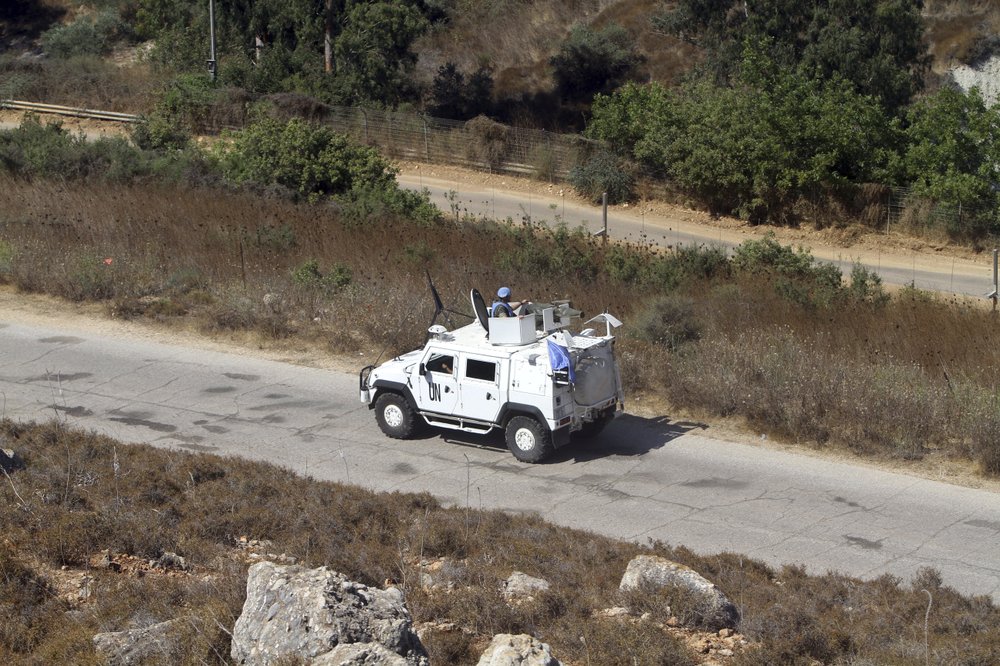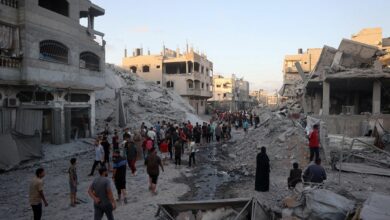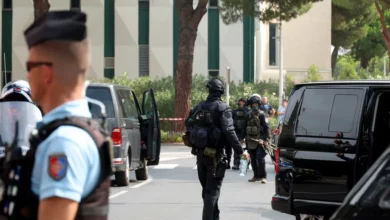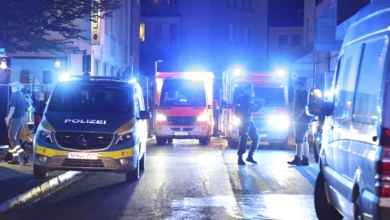
UNITED NATIONS (AP) — Rival humanitarian resolutions calling for a cease-fire in Syria’s last rebel stronghold in Idlib were defeated in the Security Council Thursday, reflecting the deep divisions that have prevented the U.N.’s most powerful body from taking action to end the eight-year Syrian conflict.
The double defeat left Idlib still facing what U.N. deputy humanitarian chief Ursula Mueller called an “alarming” humanitarian situation in Idlib as winter approaches.
The key issue was the insistence by the vast majority of council members that a resolution demand that all counter-terrorism operations comply with international humanitarian and human rights law and ensure the protection of civilians.
Idlib is dominated by the al-Qaida-linked militant group Hayat Tahrir al-Sham. Syrian forces, backed by Russia, targeted Idlib in a four-month ground and air offensive but civilians have been widely affected as well as hospitals, health facilities and other civilian infrastructure.
A cease-fire that went into effect at the end of August has held despite some violations.
Mueller told the council before the votes that an estimated 400,000 people have fled their homes in Syria’s northwest in just the last four months, and around 600,000 are living in tents, camps or out in the open. Idlib is home to some 3 million people, many of them already displaced from other parts of the war-torn country.
In the first vote, Russia and China vetoed a resolution backed by the vast majority of the 15-member council that called for a cease-fire starting Saturday. The resolution drafted by Germany, Belgium and Kuwait demanded that counter-terrorism activities comply with international law and ensure the protection of civilians.
The vote was 12-2 with Equatorial Guinea abstaining.
A rival resolution drafted by Russia and China was then put to a vote. It made no mention of counter-terrorism activities and would have exempted military actions against “terrorist groups” from a cease-fire. It did demand that all parties comply with international law and allow access to people in need, and immediately cease all attacks against civilians and medical and humanitarian personnel.
The resolution was defeated because it failed to get the minimum nine “yes” votes needed for adoption. Only Russia and China voted “yes” while nine council nations — including the U.S., Britain and France which have veto power — voted “no.” Four countries abstained: Indonesia, South Africa, Ivory Coast and Equatorial Guinea.
Mueller, the deputy humanitarian chief, said the outlook for Idlib province remains uncertain after months of intensive fighting and a “fragile cease-fire.”
She said humanitarian organizations estimate an addition $68.4 million is required for winterization, shelter and non-food items.
A major conflict in Idlib has raised the possibility of a mass refugee flow into neighboring Turkey, which borders the rebel-held province and already hosts 3.6 million Syrian refugees.
Turkish President Erdogan has previously warned that Turkey could “open its gates” and allow Syrians already living in his country to flood Western countries if Turkey is left to shoulder the refugee burden alone.
Germany’s U.N. Ambassador Christoph Heusgen told the council the aim of the first resolution was “to protect the civilian population of Idlib from the ongoing offensive.” He said it aimed to ensure counter-terrorism actions are carried out under international humanitarian law, distinguishing between civilians and combatants, and that the principle of “proportionality” is followed.
“Civilians must never be the victims of a fight against terrorism,” Heusgen stressed.
Russia’s U.N. Ambassador Vassily Nebenzia strongly disagreed with the resolution’s aim, telling the council its real goal was “to save the international terrorists who are entrenched in Idlib from their final defeat, and to free those who are guilty of what’s happening in Idlib.”
He said “the watershed moment” for Russia in vetoing the resolution was the draft resolution “ignoring the need to fight against terrorists.”
U.S. Ambassador Kelly Craft told the council after that resolution was defeated that Syrian President Bashar Assad and the country’s allies aren’t “merely conducting counter-terrorism operations” but are using counter-terrorism as “an excuse to continue a violent military campaign against those who refuse to accept the Assad regime’s authority.”
She said the Syrian government and Russia are responsible for 1,031 civilian deaths in Idlib province between April 29 when their campaign was launched and Aug. 29.
Craft said Russia’s 13th veto of a Syria resolution represents another attempt by Moscow “to absolve itself” and Assad’s government of civilian deaths.
A cease-fire resolution “would have saved lives in Idlib,” she stressed.
But Russia’s Nebenzia told reporters after the votes that the failure to approve a resolution doesn’t have any influence on the humanitarian situation in Idlib.
“The situation there remains dire,” he said. “We fully recognize it, but the reason why the situation is dire is not because we have not adopted the resolution, but because terrorists took hostage of that province.”
By EDITH M. LEDERER




